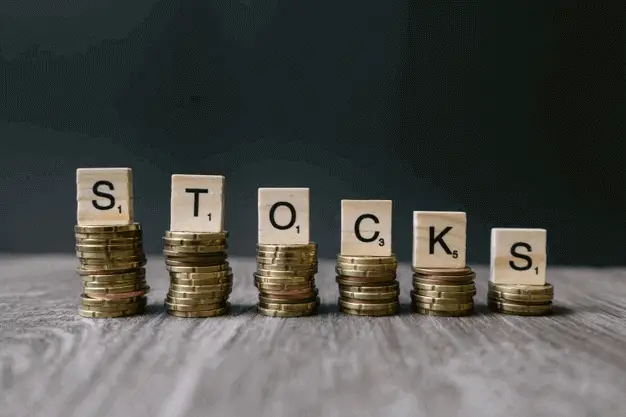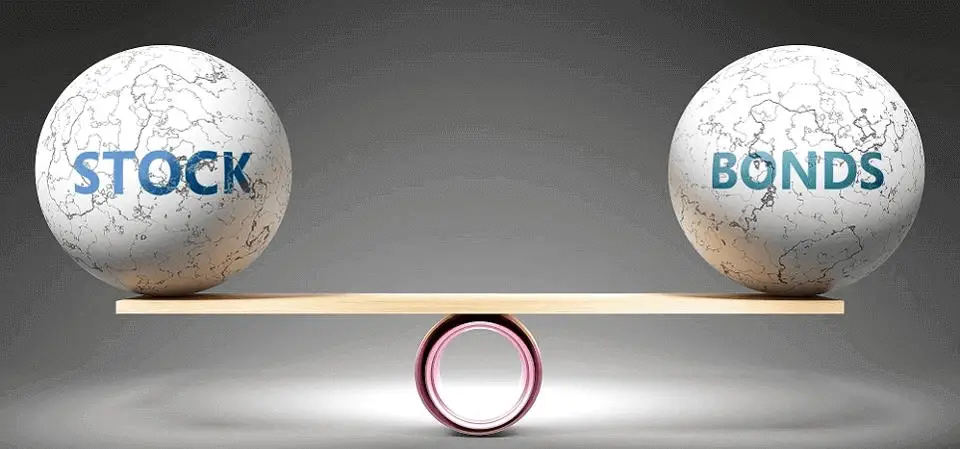
Bonds Vs Stocks
The investors’ quest for a diversified portfolio and asset allocation strategy ends with two popular asset classes: stocks and bonds.
Stocks allow investors to gain partial ownership in the company, while bonds are debt certificates that a company or government issues to investors in the bond markets.
Stocks and bonds are two traditional instruments popular among the trading community. In financial markets, investors can explore multiple investment instruments and enjoy profits for the short or long-term. They can diversify their portfolios and minimize market risks.
Corporates introduce these security derivatives to raise capital for business growth. While aimed at benefiting the issuer and the investor, stocks and bonds come with high volatility, investment risks, and varied returns. This article best describes the difference of Bonds Vs Stocks.
Stocks: What is a Stock?
Stocks
Stocks are company shares sold to the public in exchange for money through initial public offerings in the stock or equity markets. Depending on their market expertise, shareholders can choose several shares. Stocks allow investors to gain a partial ownership interest in the company. Certain stocks pay interest to investors throughout the year.
Investors make profits whenever there is capital appreciation in stock price or the company generates revenue. A stock’s profitability entirely depends on the business’s performance—and is risky for that very reason.
Bonds: What is a Bond?
Bonds
Company bonds are loans or debt certificates that a company or government issues to investors in the bond markets. They come with an agreement to pay interest at fixed times on the principal amount for a set period. One of the important features of bonds is maturity: When bond prices mature, the entity repays the loan principal to the investor. For these reasons, bonds are called fixed-income investments and are seen as less risky than stocks. But bonds make investors responsible for company debts.
A bond’s maturity and interest date depend on its type. Loans to the company are offered in the primary market, and bonds are bought and sold in the secondary market.
Difference Between Stocks & Bonds
Stocks Vs Bonds
Because investors perceive stocks and bonds to be profitable, these two asset classes will always be in high demand. Owning a stock makes investors responsible for company debts up to the value of that stock. However, stocks—and bonds—carry high amounts of risks, and knowing the difference between the two is essential. The investor must keep a mix of the two when diversifying their portfolios to ensure more profit and less risk.
Both securities present a unique opportunity for investors to maximize their earnings. But the concept behind their financial structure, investment requirements, and return ratio varies to a greater extent. Know more about essential differences by referring to this table:
Which Best Describes the Difference Between Stocks and Bonds?
| Parameters | Stocks | Bonds |
| Category | Equity | Company bonds are loans or debts |
| Issuers Are | Companies | Companies and governments |
| Types | 4 | 12 |
| Purposed At | Offering an ownership stake or a small portion of the business in exchange for money | Technically, debts or loans to the company with a maturity date |
| Profit-Loss Ratio | A profit is earned every time the business performs well or vice versa | Bonds only pay interest at a fixed rate or releases coupon payment or yield periodically until it pays back the principal amount |
| Rewards | Certain stocks pay interest to investors throughout the year. | Reliable investment bonds tend to have periodic but fixed interest payments; a bond may have conversion features |
| Benefits | Stocks allow investors to have a portion of the company | Investors become lenders to the company at times during the year |
| Extra Benefits | Voting rights on company issues | The higher priority of interest repayments in the event of liquidation |
| Risk Levels | Highly Risky, prices may fluctuate at times during the year | A bond may be less risky |
| Offered As | Initial public offerings | The company, municipal, treasury bonds |
| Trades Over | Central exchange or stock market | Over the Counter |
| Owners Known As | Stockholder or shareholder | Bondholder |
| Parties Involved | Market maker, floor trader, and broker | Retail and institutional investors and speculators |
| Maturity Period | At the investor’s will | Pre-set or contractual |
| Growth Over the Years | 10% since 1929 | 6% since 1929 |
Stocks or Bonds: Which Investment Is Better for You?
Portfolio diversification and investment gains are the ulterior motives of people trading in the financial market. Stocks and bonds are valuable assets; investors from all classes show deep interest in both these financial instruments. But the final decision to choose either should solely be based on one’s investment capacity, goals, and risk tolerance.
Those who wish to invest for the long-term and wish to have a portion of the company that interests them must seek stock. Likewise, reliable investment bonds tend to be most suited for investors who want to make profits in the short-term.
The best thing about stocks and bonds is that their values do not deviate concurrently. In simpler words, buying stocks when you are younger or investing in bonds when you have a low tolerance for risk are ideal options. Even though both securities can be sold in the open market to gain profits, bondholders wait for their bonds to reach maturity and keep earning a fixed income.
FAQS
1) Are Bonds Better Than Stocks?
Well, it depends on what you are looking for as both instruments have their advantages. Bonds are a much safer option with a lower but fixed-income opportunity, while stocks allow investors to have a higher return on their investment but are subject to more risks.
2) Is It Worth Buying Bonds Now?
Having bonds in an investment portfolio gives an edge over stocks, especially in times of a financial crisis. These offer a reasonable return, benefit from capital appreciation, and help to manage portfolio risks. As the world economy is trying to recover after being hit by the COVID-19 pandemic and bond yields are falling, investing in bonds could be worthwhile.
3) Is It a Good Time to Buy Stocks?
This article tried to explore the key difference between stocks and bonds: stocks allow investors to share in profits; bonds make investors responsible for company debts. Some stocks may pay interest at fixed durations, have high return potential, and give ownership over a portion of the company. Stock markets are returning to normalcy following the COVID-19 situation. Economic stimulus by the government may lead to an earnings rebound in 2020 and estimated growth in earnings in 2021—causing a probable elevation in stock valuations. However, stocks are highly unpredictable in the short-term, and it would be wise to invest in stocks only for the long-term. In such situations, the experience is your best teacher.












